Without any sense of hyperbole, Rome is undoubtedly one of the most ambitious TV projects ever mounted. A muscular and visceral series that charts the boyhood of the Emperor Augustus through the eyes of two ordinary soldiers, Titus Pullo and Lucius Vorenus, this is historical drama writ large.
The numbers alone make for impressive reading. Shot on 35mm over a 14-month period by eight directors and a crew of 350 on what is now the world's largest standing set - a five-acre backlot and six soundstages at Rome's Cinecitt Studios - it features a faithful recreation of much of the Republic's Forum and peaked at using 750 extras for a single scene. It boasts thousands of props all built from scratch and 4,000 wardrobe items. The figure that really tends to make people sit up and take notice comes when examining the bottom line: Rome cost the BBC and co-producer HBO a reputed $100m to make.
"I don't know what the final total on the budget was," says BBC controller of drama commissioning, Jane Tranter. "The BBC investment was capped and there came a point beyond which I didn't really want to know."
Tranter, who admits that Rome along with Doctor Who and To the Ends of the Earth has added to what amounts to a year of sleepless nights, refuses to be further drawn on costs beyond the fact that HBO was by far the majority investor. She is also coy about the implications of that for who had final approval. "The way that life works, the person who has invested the most money stands to risk the most and it was cash-flowing the entire production and making it," she says. "All the big creative decisions were discussed together, but HBO was the one that went off and made it happen and paid for it."
Whatever the nature of the actual dynamic between the two broadcasters, however, it wasn't long before they hit upon a problem that could have led to a much earlier decline and fall of Rome than anyone had foreseen.
Rome's genesis lies back in 2001 with a conversation about I, Claudius between Tranter and HBO executive producer Anne Thomopoulos. Both were admirers and both broadcasters were looking to develop "something Roman". The BBC was looking seriously at something based on Lindsay Davis' Falco novels before a year later Thomopoulos showed Tranter a script written by British writer Bruno Heller. "We were really taken with the particular attitude that he had to the material and to the mixing of the personal and the political," says Tranter.
By May last year though, the production was in difficulties. The story varies slightly depending on who you talk to, but either way the facts are that after three episodes had been shot, the BBC and HBO realised they had a problem. Rome simply wasn't working. After distilling all the comments from people who worked on the production, it seems the goal had been to create an almost revisionist Rome; a living, breathing, believable Rome and one which above all had contemporary relevance. Instead, they found themselves with a far too pristine classical Rome, with actors declaiming heightened dialogue centre stage and not enough extras wandering unconvincingly through unconvincing streets.
At this point, executive producer Frank Doelger (The Gathering Storm, Conspiracy) was brought on board to turn the production round.
"I sat down with the BBC and HBO and we collectively examined it, decided what was working well and what was not and retooled it from that point of view," he says. "I think it would have been an impossible project for anyone to get right first time out of the gate. It was so ambitious, so complicated, so bold that if the budget hadn't made it impossible, there should have been a pilot."
Therein lies the rub. No pilot meant a significant amount of money had already been ploughed into the production before any unease had surfaced, with the majority of the budget for sets and costumes, for example, already spent. Again, the story becomes somewhat hazy, but it seems that HBO is made of sterner stuff than many and kept bankrolling the production while it went into self-reflective hiatus for two months and reimagined itself.
"The hiatus was very useful," says Heller. "We were to get into those areas that you can't when you're working on the fly." More extras were given more rehearsal, the actors got to re-engage and reinterpret the characters, the dialogue was made less theatrical, the crew was augmented, the city dirtied up and energised to make it more like a current developing world metropolis such as Mumbai, and some elements of the first three episodes were reshot.
"It was an expensive rehearsal but a good one," says Doelger. "I think everyone drew an enormous sigh of relief when they saw the rough cut of the fourth episode. Two or three episodes later the relief became cautious optimism, which then went to excitement by episode nine and lots of very, very happy people by the time we finished."
Indeed, HBO is happy enough with Rome's reception in the US that it has greenlit a second series, which it will again co-produce with the BBC. Heller says season two will probably centre on the struggle between Brutus and Mark.
Lessons have been learnt all over, though, which, given that Tranter says that partners are crucial for the BBC to be able to "punch through" on international sales, will no doubt prove to be useful in tackling projects of this scale in the future. She has been particularly impressed with some of HBO's working methodology, especially the way it doesn't lock episodes until the whole production can be seen in its entirety, its habit of making the writer the showrunner and "holding the creative flame," and what she refers to as an "almost brutal" method of casting.
"We spend our money in different places," she says. "We tend to be quite cautious in pre-production. There's a received, only half-joking wisdom in BBC drama that you develop something for 10 years, then you're given 10 days to shoot it, you get 10 weeks to post-produce it and it goes out in 10 minutes and it's all over. By the same measures, HBO would spend 10 days developing it, 10 weeks shooting it, 10 weeks editing it and then show it 10 times all through the night to pick up as many viewers as possible."
Doelger meanwhile, who embarks next on the HBO/BBC funded sequel to The Gathering Storm, is adamant that any form of pilot is crucial to a production. "Even if it's just getting a group of actors together and putting them in a rehearsal room to hear how the material sounds and get a sense of what it will take to get from the script to the page," he says. "There are so many key issues to resolve around tone and the feel of the piece. You also need as much clarity as you can have going into co-productions in terms of length, expectations, the chain of command and so on. Those conversations have to be had early on and talked through very carefully."
Rome airs on BBC2 on 2 November at 9pm
Costumes and props
For Arthur Wicks (props) and April Ferry (costumes), Rome started with lots and lots of research.
"You start with reference books and spend a bit of time hitting all the libraries in town looking at pictures and reading up on things," says Wicks. "Everything I found I'd run past Jonathan [Stamp], who also had a load of reference books, so we were basically working together to make sure everything was correct."
Wicks's core four-man team made 90% of the thousands of props for the show from scratch, challenges ranging from the gruesome (a raft of bloated corpses) to sheer scale. "We had to make a 20 sq m map of Rome out of leather, which Julius Caesar gets a couple of slaves to roll out and then strides across pointing out different areas," he says.
Authenticity was vital. While Wicks had to contend with rubber swords, Ferry, who could have as many as 45 costumiers working on the big scenes, used materials as close to the originals as possible. "I went to India and I got wonderful, authentic-looking fabric and I also got some from sources in Italy," she says. "We mostly started out with white fabric and then dyed everything, as they would have done in Roman times. It was an enormous job but it was so creative."
Building Rome
For Rome's production designer, Joseph Bennett, a break of several months in filming was one of the best things that could have happened in his quest to get the massive set just right.
"You have to remember that Rome was over 500 years old when our film was set and if you go round a real city you see the textures of additions over time," he says. "We're used to seeing a much later Imperial Rome after Augustus had torn down a lot of buildings. A lot of what we associate with Rome is thus more of a single vision. What we needed though was a real city with all the changes and different personalities over the centuries that go into making a city."
Working mainly with Cinecitta and Italian craftspeople (though casting his net as far as Poland when required), the break saw Bennett's team given a bigger budget and being able to add more layers of plaster, sow grass between the cobbles, and generally add the age their city needed. "You need ups and downs and crookedness," says Bennett.
Three sides of the Forum were built at a reduced scale, partly for time and budget reasons, partly because it would have been prohibitively expensive to fill the full-sized one with extras. The main material was fibreglass, with brickwork being built from moulds of actual Roman bricks. Some small liberties were taken with the design, such as the Temple of Jupiter being brought down from its hillside location and the production ignoring the fact that the Senate had actually burned down by the time the drama is set.
The set should be even more convincing by the second season. "The advantage we have is that the longer the set is up, the more realistic it is because it develops a patina; a repair overdoes another repair just as it would have done 2,000 years ago."


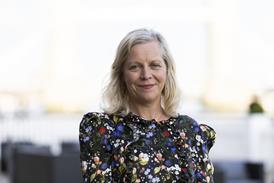
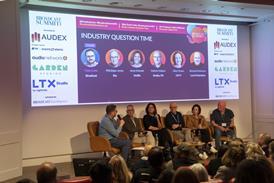
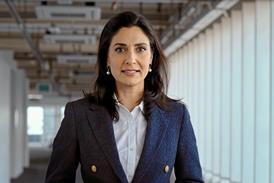
















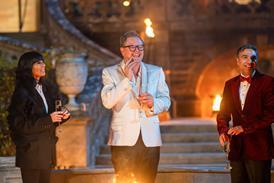
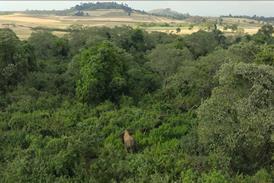



No comments yet